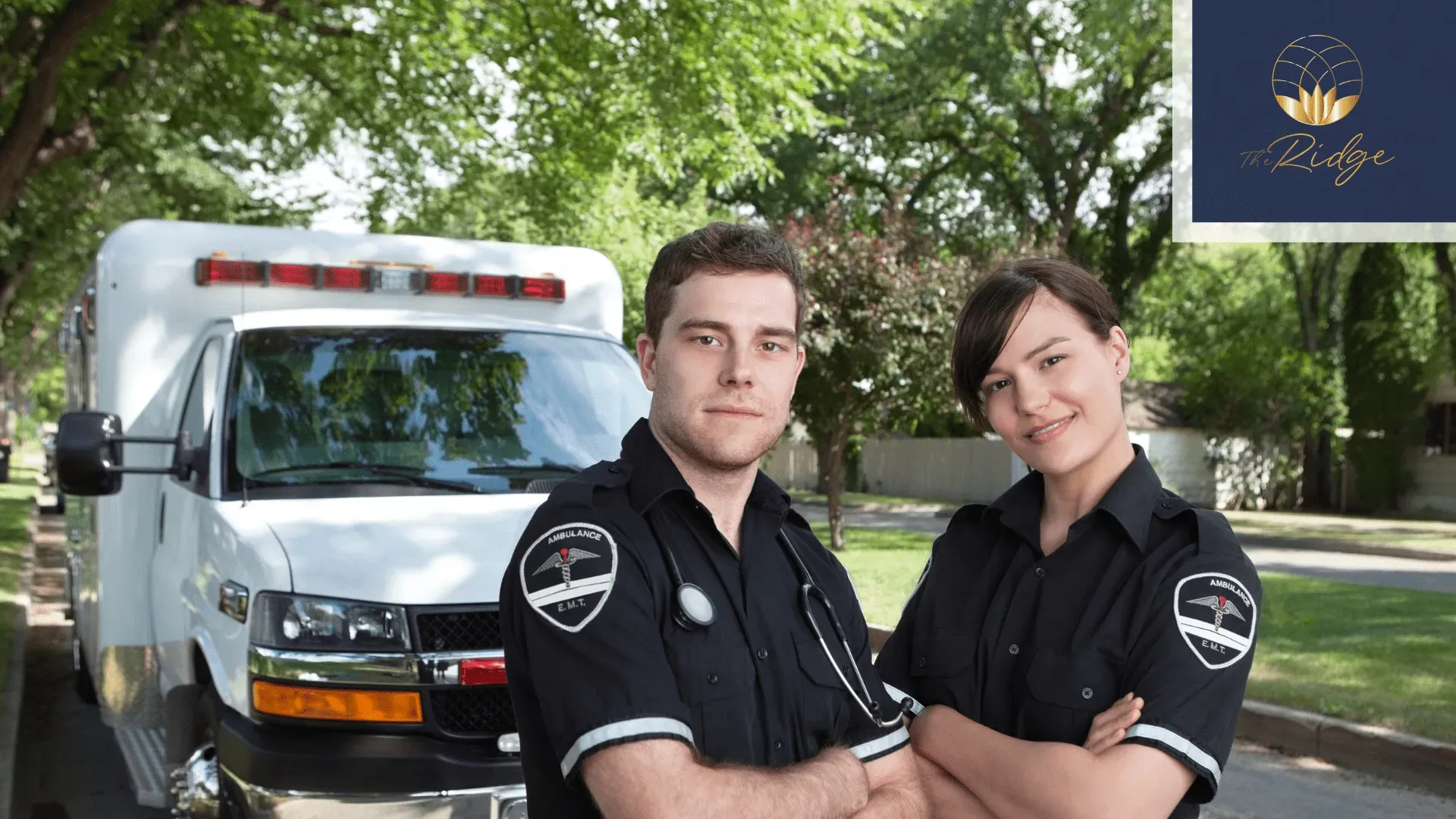First responders, such as police officers, firefighters, and emergency medical service providers, are often exposed to traumatic events in their line of work. These experiences can have a profound impact on their mental health and, in some cases, lead to addiction. Unfortunately, there is still a stigma surrounding mental health and addiction in first responders, which can make it difficult for them to seek help. In this article, we will explore the complex relationship between trauma and addiction among first responders, including the latest research and best practices for treatment.
Introduction to trauma and addiction among first responders
First responders are exposed to various traumatic events that can have lasting effects on their mental health. These experiences can include witnessing violent crimes, responding to natural disasters, and providing emergency medical care to critically injured patients. Over time, exposure to these traumatic events can lead to a range of mental health issues, including post-traumatic stress disorder (PTSD), depression, anxiety, and addiction.
Unfortunately, the culture of first responder work can make it difficult for individuals to seek help for mental health and addiction issues. There is often a culture of toughness and resilience within these professions, which can create a stigma surrounding mental health and addiction. Additionally, many first responder jobs require individuals to maintain a security clearance, which can make it difficult to seek help without risking their job.
Understanding complex trauma and how it affects first responders
One of the most significant challenges facing first responders with trauma and addiction is complex trauma. Complex trauma is a type of trauma that occurs repeatedly over time, such as ongoing abuse or neglect. First responders are often exposed to complex trauma in their work, as they may respond to the same types of incidents repeatedly, such as domestic violence calls.
Complex trauma can have a profound impact on an individual’s mental health. It can lead to a range of symptoms, including dissociation, avoidance, and hypervigilance. These symptoms can make it difficult for individuals to function in their daily lives and can contribute to the development of addiction.
The connection between trauma and addiction
There is a strong connection between trauma and addiction. Studies have shown that individuals who have experienced trauma are more likely to develop addiction than those who have not. This is due in part to the impact that trauma can have on an individual’s brain chemistry.
Trauma can lead to changes in the brain’s reward center, which can make individuals more susceptible to addiction. Additionally, trauma can lead to feelings of anxiety, depression, and shame, which can contribute to the development of addiction as individuals seek to self-medicate these emotions.
Substance abuse and trauma: Statistics and research
The statistics surrounding substance abuse and trauma among first responders are staggering. According to the Substance Abuse and Mental Health Services Administration, first responders are more likely to suffer from mental health and substance abuse issues than the general population. Additionally, a study by the National Institute on Drug Abuse found that first responders are at an increased risk of prescription drug abuse due to their exposure to injury and trauma in the course of their work.
Research has also shown that first responders are more likely to suffer from PTSD than the general population. According to the National Center for PTSD, up to 20% of first responders experience PTSD at some point in their career. PTSD can lead to a range of mental health and addiction issues, including depression, anxiety, and substance abuse.
Stress and drug abuse: How trauma leads to addiction
Stress is a significant factor in the development of addiction among first responders with trauma. The high-stress nature of first responder work can lead to chronic stress, which can have a range of negative effects on mental health and physical health.
Chronic stress can lead to changes in the brain’s reward center, which can make individuals more susceptible to addiction. Additionally, stress can lead to feelings of anxiety and depression, which can contribute to the development of addiction as individuals seek to self-medicate these emotions.
Treating trauma and addiction: Approaches and therapies
Treating trauma and addiction among first responders requires a specialized approach that takes into account the unique challenges facing these individuals. One effective approach is trauma-focused cognitive-behavioral therapy (TF-CBT). TF-CBT is a type of therapy that focuses on helping individuals process traumatic events and develop coping strategies to manage the symptoms of PTSD and addiction.
Another effective approach is Eye Movement Desensitization and Reprocessing (EMDR). EMDR is a type of therapy that uses eye movements and other forms of bilateral stimulation to help individuals process traumatic memories and reduce the symptoms of PTSD and addiction.
Trauma and substance abuse treatment: Best practices and success stories
There are many best practices for treating trauma and addiction among first responders. One of the most important is to provide a safe and supportive environment for individuals to seek help. This can include creating a culture of openness and acceptance around mental health and addiction issues, as well as providing confidential and accessible resources for seeking treatment.
Another best practice is to provide specialized treatment that is tailored to the unique needs of first responders with trauma and addiction. This can include trauma-focused therapies, addiction treatment that is tailored to the individual’s needs, and support groups that are specifically designed for first responders.
PTSD and substance abuse: Understanding the co-occurring disorders
PTSD and substance abuse are co-occurring disorders that are common among first responders. PTSD is a mental health disorder that can develop after exposure to a traumatic event, while substance abuse refers to the use of drugs or alcohol in a way that is harmful to an individual’s health or social functioning.
Research has shown that PTSD and substance abuse often co-occur, with individuals with PTSD being at an increased risk of developing addiction. Additionally, substance abuse can make the symptoms of PTSD worse, leading to a cycle of addiction and mental health issues.
Breaking the stigma: Raising awareness and reducing shame
Breaking the stigma surrounding mental health and addiction among first responders is essential to helping individuals seek the help they need. This can include raising awareness about the prevalence of mental health and addiction issues among first responders, as well as reducing the shame and stigma associated with seeking help.
The Ridge provides a range of resources and support for first responders with trauma and addiction, including confidential treatment options and specialized support groups.
By providing a safe and supportive environment for individuals to seek help, we can help break the stigma and reduce the negative impact of trauma and addiction on first responders.
Hope and healing for first responders with trauma and addiction
Trauma and addiction are significant challenges facing first responders, but there is hope for healing. By providing specialized treatment that is tailored to the unique needs of first responders with trauma and addiction, we can help individuals overcome these challenges and build a brighter future.
The Ridge is dedicated to providing the resources and support that first responders need to overcome trauma and addiction. By breaking the stigma and raising awareness about these issues, we can help create a culture of acceptance and support that empowers individuals to seek the help they need and build a brighter future.
As a testament to the effectiveness of specialized treatment, I invite you to explore Dr. Springston’s insightful case study on this topic. In his article, available here, he presents a compelling case study that highlights the importance of tailored approaches for first responders with trauma and addiction, further emphasizing the significance of comprehensive care and support in their journey toward healing and recovery.
Key Takeaways
- First responders, such as police officers, firefighters, and emergency medical service providers, often experience traumatic events in their line of work, leading to mental health issues and addiction.
- Stigma surrounding mental health and addiction in first responder professions can make it challenging for individuals to seek help.
- Complex trauma, which occurs repeatedly over time, is a significant challenge for first responders and can contribute to addiction.
- There is a strong connection between trauma and addiction, with trauma altering brain chemistry and leading to self-medication through substance abuse.
- First responders have higher rates of mental health and substance abuse issues compared to the general population, with PTSD being prevalent among them.
- Chronic stress in first responder work can contribute to addiction by impacting the brain’s reward center and exacerbating anxiety and depression.
- Effective treatment for trauma and addiction among first responders includes trauma-focused therapies, tailored addiction treatment, and support groups specifically designed for first responders. Creating a safe and supportive environment is crucial in breaking the stigma and helping individuals seek help.
Frequently Asked Questions
- How can first responders overcome the stigma surrounding mental health and addiction?
First responders can overcome the stigma surrounding mental health and addiction by raising awareness and promoting open discussions about these issues. Creating a culture of acceptance and support within their organizations is crucial. Providing education and training on mental health, addiction, and available resources can also help reduce the stigma. Encouraging peer support and confidential channels for seeking help can make it easier for first responders to reach out for assistance without fear of judgment or negative consequences.
- What are some signs that a first responder may be struggling with trauma and addiction?
Some signs that a first responder may be struggling with trauma and addiction include changes in behavior, such as increased irritability, withdrawal from social activities, frequent mood swings, and difficulty concentrating. They may also exhibit signs of substance abuse, such as using drugs or alcohol as a coping mechanism, engaging in risky behavior, or experiencing a decline in job performance. Physical symptoms like sleep disturbances, unexplained aches or pains, and changes in appetite may also be present.
- Are there specialized treatment programs available for first responders with trauma and addiction?
Yes, there are specialized treatment programs available for first responders with trauma and addiction. These programs understand the unique challenges faced by first responders and tailor the treatment approach accordingly. Trauma-focused therapies, such as cognitive-behavioral therapy (CBT) and Eye Movement Desensitization and Reprocessing (EMDR), are often used to address trauma-related symptoms. Additionally, addiction treatment programs may incorporate strategies specific to first responders, including addressing work-related stressors and building resilience.
- Can first responders with trauma and addiction seek help without risking their job or security clearance?
Yes, first responders with trauma and addiction can seek help without necessarily risking their job or security clearance. Many organizations have implemented confidential reporting systems or employee assistance programs (EAPs) that prioritize privacy and confidentiality. These programs offer support, counseling, and treatment options while maintaining the confidentiality of the individual. It is essential for first responders to familiarize themselves with the policies and resources available to them to ensure they can seek help while protecting their job and security clearance.
- How can family and colleagues support first responders dealing with trauma and addiction?
Family and colleagues play a vital role in supporting first responders dealing with trauma and addiction. They can offer a listening ear, understanding, and empathy without judgment. Encouraging the individual to seek professional help and providing information about available resources can be beneficial. Family members can educate themselves about trauma and addiction to better understand the challenges their loved one is facing. Additionally, offering assistance with practical matters, such as childcare or household responsibilities, can help alleviate some of the stressors and allow the individual to focus on their recovery.
















